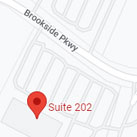Pacemaker Implant
What is a Pacemaker ?
A pacemaker is a small device that is inserted just under the skin on the chest to control abnormal heart rhythms.
Although it weighs just about an ounce, a pacemaker contains a powerful battery, electronic circuits and computer memory that together generate electronic signals. The signals, or pacing pulses, are carried along thin, insulated wires, or leads, to the heart muscle. The signals cause the heart muscle to begin the contractions that cause a heartbeat.
A pacemaker is implanted just below the collarbone in a surgical procedure that takes about two hours. It is programmed to stimulate the heart at a pre-determined rate, and settings can be adjusted at any time. Routine evaluation, sometimes even via telephone, ensures the pacemaker is working properly and monitors battery life, which generally runs from five to ten years.
When is a pacemaker needed?
The most common reason for a pacemaker is a heartbeat that slows to an unhealthy rate, or bradycardia. A pacemaker resets the heart rate to an appropriate pace, ensuring adequate blood and oxygen are delivered to the brain and other parts of the body.
AHA Recommendation Regarding Pacemakers
If you have an artificial pacemaker, be aware of your surroundings and the devices that may interfere with pulse generators:
Home Appliances
- CB radios, electric drills, electric blankets, electric shavers, ham radios, heating pads, metal detectors, microwave ovens, TV transmitters and remote control TV changers, in general, have not been shown to damage pacemaker pulse generators, change pacing rates or totally inhibit pacemaker output.
- Several of these devices, however, have a remote potential to cause interference by occasionally inhibiting a single beat. However, most people can continue to use these devices without significant worry about damage or interference with their pacemakers.
- Power-generating equipment, arc welding equipment and powerful magnets (as in medical devices, heavy equipment or motors) can inhibit pulse generators. Patients who work with or near such equipment should know that their pacemakers may not work properly in those conditions.
Cell Phones
- Cell phones available in the United States (less than 3 watts) do not seem to damage pulse generators nor affect how the pacemaker works.
- Technology is rapidly changing as the Federal Communications Commission (FCC) is making new frequencies available. Newer cell phones using these new frequencies might make pacemakers less reliable. A group of cell phone companies are studying this possibility.
Medical Equipment
- Carry a wallet I.D. card with you. Equipment used by doctors and dentists can affect your pacemaker so be sure to tell them you have one.
- Magnetic Resonance Imaging (MRI) uses a powerful magnet to produce images of internal organs and functions. Metal objects are attracted to the magnet and are normally not allowed near MRI machines. The magnet can interrupt the pacing and inhibit the output of pacemakers. If an MRI must be performed, the pacemaker output in some models can be reprogrammed. Discuss with your doctor the possible risks and benefits before you undergo MRI scanning.
- Extracorporeal Shock-Save Lithotripsy (ESWL) is a noninvasive treatment that uses hydraulic shocks to dissolve kidney stones. This procedure is safe for most pacemaker patients with some reprogramming of the pacing. You'll need careful follow-up after the procedure for several months to be sure your unit is working properly. Patients with certain kinds of pacemakers implanted in the abdomen should avoid ESWL. Discuss your specific case with your doctor before and after the treatment.
- Radiofrequency (RF) ablation uses radio waves to manage a wide variety of arrhythmias. Recent studies of patients with implanted pacing systems measured the units before, during and after RF catheter ablation. They showed that most permanent pacemakers are not adversely affected by radio frequencies during catheter ablation. A variety of changes in your pacemaker can occur during and after the treatment. Your doctor should carefully evaluate your pacing system after the procedure.
- Transcutaneous Electrical Nerve Stimulation (TENS) is used to relieve acute or chronic pain. Several electrodes are placed on the skin and connected to a pulse generator. Most studies have shown that TENS rarely inhibits bipolar pacing, although it may sometimes briefly inhibit unipolar pacing. This can be treated by reprogramming the pulse generator.
- Diagnostic radiation (such as screening X-ray) appears to have no effect on pacemaker pulse generators. However, therapeutic radiation (such as for treating cancerous tumors) may damage the pacemaker's circuits. The degree of damage is unpredictable and may vary with different systems, but the risk is significant and builds up as the radiation dose increases. The American Heart Association recommends that the pacemaker be shielded as much as possible and moved if it lies directly in the radiation field. If you depend on your pacemaker for normal heart pacing, the electrocardiogram (ECG) should be monitored during the treatment, and your pulse generator should be tested frequently after and between radiation sessions.
- Dental equipment doesn't appear to affect pacemakers adversely. Some patients may feel an increase in pacing rates during dental drilling.
- Electroconvulsive therapy (such as for certain mental disorders) appears to be safely used in patients with pacemakers.
- Short-wave or microwave diathermy uses high-frequency, high-intensity signals. These may bypass your pacemaker's noise protection and interfere with or permanently damage the pulse generator.





